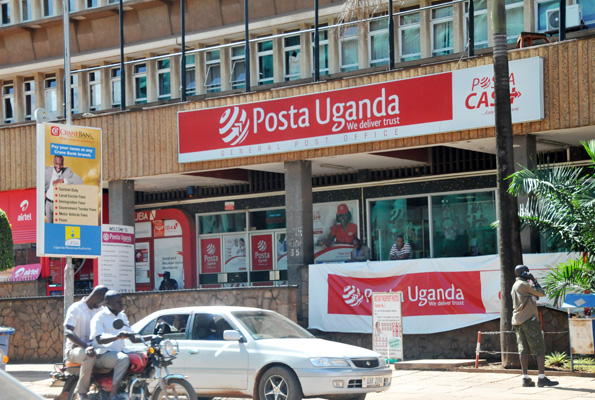The tough economic hardships that hit the country in the financial year 2016/17 left the government-owned Posta Uganda with a drop of 6.7 percent in revenue as it earned Shs19.04b compared to Shs20.4b posted in FY2015/16, the Auditor General Paul Muwanga says.
According to the statement, Post Uganda realized a gross profit of Shs1.22b in financial year 2016/17, lower than Shs1.39b it earned in the previous financial year. During the reporting period, the company wrote off bad debts worth Shs7.43b compared to financial year 2015/15 where it did not write off any bad debt.
The company records show that profit grew consistently to Shs1.39b in financial year 2015/16 from Shs161m in financial year 2013/14. The company’s total assets came down to Shs96.78b in financial year 2016/17 compared to Shs104.63b in the previous financial year.
Part of the reasons for the decline on value of non-current assets, is that property worth Shs1.00b was ceded to UNRA under compulsory acquisition for construction of the Clock Tower Road Project.
The report further show that total indebtness of the company reduced by 17.01 percent in financial year 2016/17, largely due to sustained efforts to bring down liabilities which among others include paying to NSSF monthly contributions.
“Total expenditure shrank by 6.19 percent, a further reflection of management’s resolve to keep spending within budget to guard against sliding in debt again,” reads part of the report, adding that the elimination of erroneous book-keeping has facilitated accurate financial reporting and analysis.
The company management reports that it has developed a strategic plan aimed at a minimum of 7 percent growth in annual turnover within the next five years. The company, as reported, stands on solid ground is well poised for long-term survival and growth.
“As Accounting Officer I am comforted by the long journey of steady progress, and rest assured that Posta’s future is secure,” says Muwanga. Posta Uganda deals in delivery of parcels and transportation among other services. Being a government-owned company it has had stiff competition from private players who have launched competing services.







